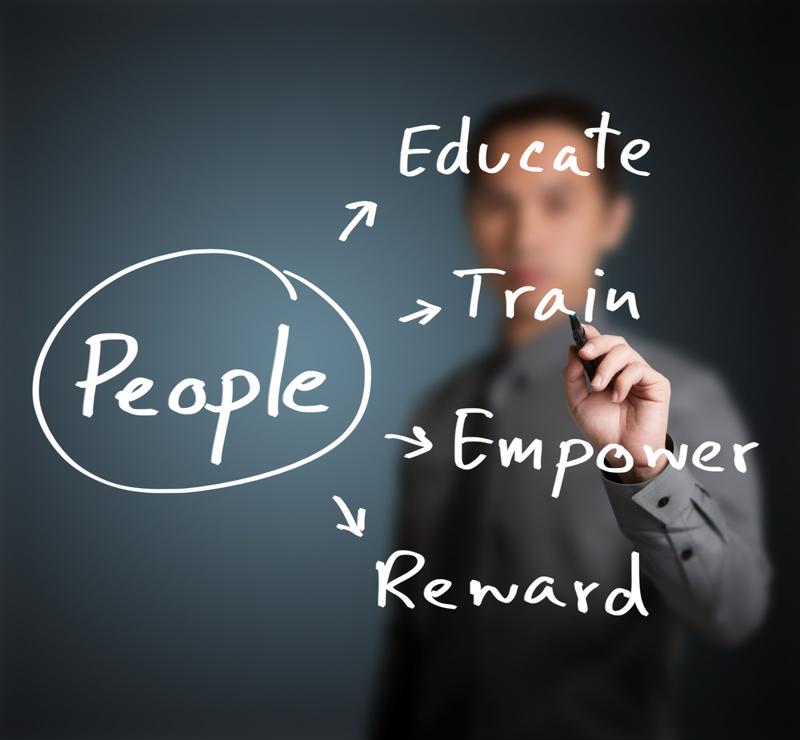
Employee recognition programs in 2018: 4 trends to watch
Employee recognition programs are important tools that can help employers retain their most talented employees. However, giving someone a plaque or trophy isn't the only way to shine a light on top performers.
"Employee recognition is not only an important tool to simply retain an organization's talent, it is also an essential ingredient for having a healthy, teamwork-focused, productive work environment," says Peter Van Scoy, Division Director at Beacon Hill's Financial Division in Dallas.
Here are a few emerging trends in modern recognition programs:
1. Flexibility as reward
Though many employee recognition programs focus on rewarding star employees with awards and monetary compensation, some employers are beginning to offer a new type of benefit: flexibility. As our image of work/life balance changes over time, some employees want more flexible schedules. Employees may have different reasons for wanting a nontraditional work schedule; they may want to take care of family, pursue a hobby, travel more - anything. They want to be able to lead their best lives.
A flexible schedule isn't about getting out of work or doing less; it's about performing work when an employee is best able to do so. For positions that don't require constant contact with customers or clients, employees may be able to get their assigned work done outside of traditional work hours.
Of course, flexible hours aren't for everyone, which makes it a good reward. Management can identify employees who have shown themselves capable of managing their schedules and tasks lists and reward them with increased flexibility.
2. Personalized recognition
In an era of personalization, standard rewards seem impersonal and generic. If every employee receives the same reward for his or her unique contribution to the job, the rewards not only feel less special but also less impactful.
Managers should consider surveying their teams about the kinds of rewards that speak to them the most. Some workers may prefer flex hours to a cash bonus, for instance. Asking for employee opinions ensures not only that you choose the right rewards, but also that the conversation serves to get employees excited about the possibility of recognition.
As you look for ways to personalize your recognition program, it may be helpful to split rewards into two buckets: individual and team rewards. "An effective employee recognition program should be personalized and specific to the individual being recognized," notes Mr. Van Scoy. "But it should also be versatile and relatable enough to motivate the entire team." Personalized rewards for individuals can recognize the efforts of top performers. Team rewards are an excellent way to celebrate the completion of a large, group project.

3. Less emphasis on tenure
According to Forbes contributor and founder of Bersin by Deloitte, Josh Bersin, 87 percent of all employee recognition programs focus on tenure.These systems reward employees for staying with an employer over the years, but not much else.
As Bersin pointed out, these programs are problematic because they don't reward employees for doing anything in particular. At worst, they reward employees for merely sticking around. In other words, tenure-based recognition programs can be ineffective because they may miss the feedback loop. To employees, it can feel like the employer is saying, "Oh, you're still here? Have a reward!"
Recognition programs that put greater emphasis on achievement and performance are much more beneficial. According to Bersin, organizations that score in the top 20 percent for building a recognition-rich corporate culture have turnover rates 31 percent lower than their competitors. The lesson here is simple: Get specific with your praise.
4. Immediate recognition
Why wait until the end of the quarter or year to recognize your top-performing employees? There's not much value in waiting to give praise, so managers should try to recognize employee efforts in real time. Even if you're going to give employees cash rewards with their next paychecks, send them a note immediately.
"Offer people the things they want, and know that happy employees produce the best work," advises Emily Kaeli, Division Director of Beacon Hill's Associates Division in New York. "I think the best thing a manager can do is know what motivates their employees. Some prefer public praise, others bonus incentives and contests, and still others prefer flexibility in their schedule. You never want to discover that a great employee left your company for another because they offered something you weren't able to."
Want more tips on boosting morale at your office? Check out our resource center today.
This content is brought to you by the Marketing Team at Beacon Hill Staffing Group.
 Back to Top
Back to Top

